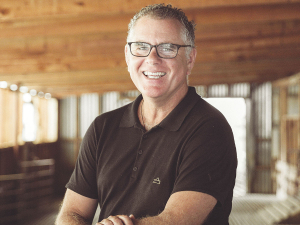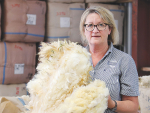Fifteen new wool companies have signed up to the NZFAP, which provides assurance to customers and consumers about the integrity, traceability, biosecurity, food safety, environmental sustainability and animal health and welfare of New Zealand's primary sector products.
The 15 wool companies join 17 red meat processors, one other wool company, a sheep milk company, Beef + Lamb NZ (B+LNZ) and Deer Industry NZ (DINZ) who are already in the programme.
It will enable the new wool industry members to adopt the NZFAP as a NZ National Standard for wool. There are currently around 8,000 NZFAP-certified sheep, beef, and deer farmers, with about 6,500 farming sheep. Membership of the NZFAP means that all wool companies that sign up will immediately have access to Farm Assured wool from these 6,500 properties. For farmers there is no change as the wool standards are already included in the NZFAP audits.
New Zealand Farm Assurance Incorporated (NZFAI), which owns the NZFAP, and the National Council of New Zealand Wool Interests (NCNZWI), have signed a Memorandum of Understanding which has paved the way for membership.
NZFAI chair Nick Beeby says extending the NZFAP certification to wool companies galvanises the primary industry collaborative power into a single and robust New Zealand assurance story.
“We’re all telling the same origin and assurance story, which the wool exporters can now share with their discerning manufacturers and retail brand owners. This initiative creates a single multi-sector assurance standard, eliminates duplication, and further reduces cost, which have been NZFAI priorities from the beginning.”
Beeby claims the adoption of the NZFAP as a national standard for wool will also help to drive consistency in grower standards and provide a platform for the standardisation of New Zealand wool and command a price premium for the benefit of growers.
NCNZWI Craig Smith says it’s a great opportunity for the wool industry to leverage off this foundation and establish a complementary National Standard for wool.
“The development of a unified New Zealand wool assurance standard will support increased differentiation and demand for New Zealand wool in the global marketplace,” he adds.
“This provides the value-chain assurances we need around land management, origin, traceability, animal health and welfare and gives us the ability to work with the red meat sector to make this happen.”
Smith concedes that the wool sector has been under-performing in a challenging consumer market, but believes this move creates a unique and compelling value proposition for New Zealand wool.



















